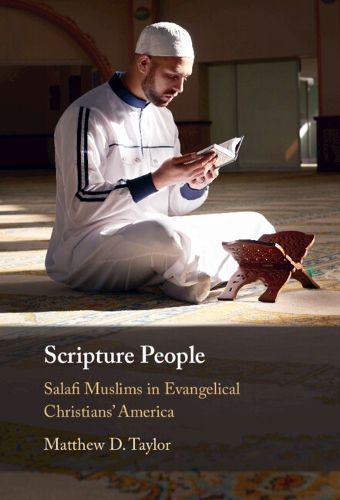Scripture People
Matthew D. Taylor

Scripture People
Matthew D. Taylor
On 9/11, many Americans were introduced to an Islamic movement called Salafism, the theological strand that includes Al Qaeda. Since then, Salafism, an important and popular movement in global Islam, has frequently been disparaged as 'Radical Islam' or 'Islamic fundamentalism.' Scripture People is the first book-length study of the embattled American Salafi movement and the challenges it has faced post-9/11. Matthew D. Taylor recounts how these so-called "Radical Muslims" have adopted deeply rooted American forms of religious belonging and values. Through comparison with American Evangelical Christianity, informed by his own Evangelical background and studies, Taylor explores the parallel impulses, convergent identities, and even surprising friendships that have emerged between Salafis and Evangelicals in America. Offering an entry point for understanding the dynamics and disagreements among American Muslims, Taylor's volume upends narratives about 'Radical Islam' by demonstrating how Salafi Muslims have flexibly adapted to American religious patterns in the twenty-first century.
This item is not currently in-stock. It can be ordered online and is expected to ship in approx 2 weeks
Our stock data is updated periodically, and availability may change throughout the day for in-demand items. Please call the relevant shop for the most current stock information. Prices are subject to change without notice.
Sign in or become a Readings Member to add this title to a wishlist.


